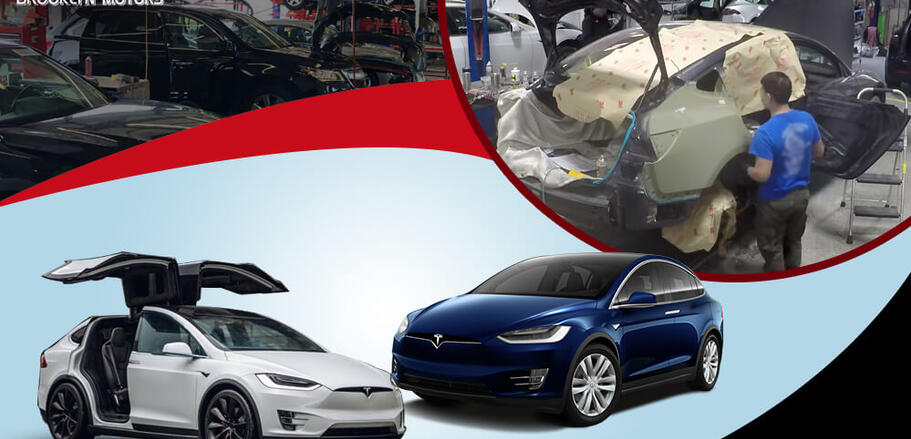
 June 26, 2024
June 26, 2024Ever wondered why Tesla is so picky about where you get your car fixed? It's not just because they're control freaks. Tesla-recommended body shops offer tailored services that go beyond your average fender bender repair. Let's dive into why these shops are the cream of the crop when it comes to fixing up your electric car.
Not Just Any Old Body Shop
First things first: working on a Tesla isn't like tinkering with your granddad's old Chevy. These cars are computers on wheels. Tesla-approved shops have technicians who've gone through rigorous training to understand the ins and outs of these high-tech machines. They're not just mechanics; they're more like Silicon Valley engineers in grease-stained overalls.
The Right Tools for the Job
You wouldn't use a sledgehammer to hang a picture, right? The same goes for fixing a Tesla at the body shop New York. These recommended shops are equipped with specialized tools and diagnostic equipment designed specifically for Tesla vehicles. It's like having a superhero utility belt but for car repair.
Access to the Mother Ship
One of the biggest perks of Tesla-approved shops? They have a direct line to Tesla HQ. This means they get the latest updates, repair procedures, and even custom parts straight from the source.
Keeping Up with the Trends
Tesla is constantly updating their cars - sometimes even while you sleep! Approved body shops are always in the loop about these changes. So, whether your Model S is from 2012 or you've got the latest Model Y, they know exactly what they're dealing with at the Tesla recommended body shop.
The Aluminum Advantage
Tesla bodies are made of aluminum, which is great for making the car lighter and more efficient. But it's trickier to work with than traditional steel. Tesla-approved shops have the expertise to handle this material without turning your sleek ride into a crumpled soda can.
Software Savvy
Well, sometimes fixing them is more about software than hardware. Approved shops can access and update your car's software, ensuring everything works perfectly.
Using a Tesla-recommended shop means you don't have to stress about voiding your warranty. These places know exactly what they can and can't do to keep your warranty intact. It's like having a get-out-of-jail-free card for your car repairs.
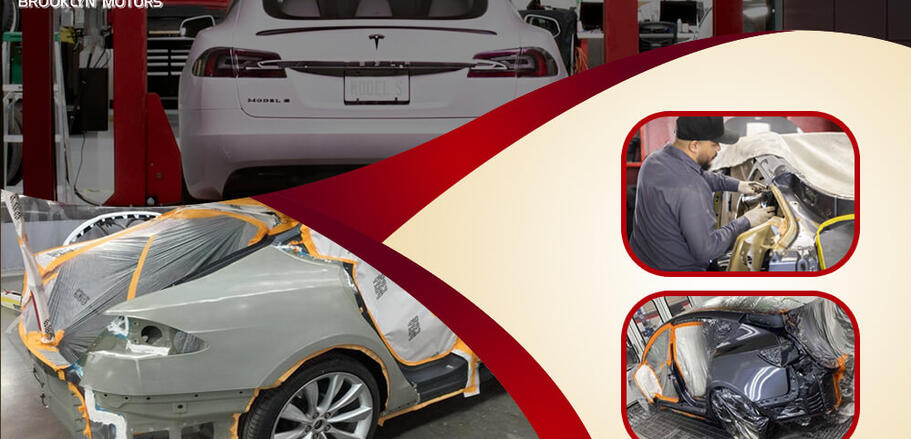
 June 21, 2024
June 21, 2024For the auto techs and detail specialists working at certified Tesla body shops, restoring those sleek electric vehicles to showroom perfection is both an art and a science. And one of their not-so-secret weapons? A little something called rubbing compound.
The Scourge of Swirls and Scratches
Even the most pristine Tesla can fall victim to the dreaded paint imperfections that come from environmental exposure, improper washing techniques, or just daily driving hazards. Stubborn defects like hairline scratches, etched watermarks, oxidation, and unsightly swirl marks can quickly dull that factory-fresh luster.
While major dents and dings require body work, Tesla's expert detailers know that properly utilizing a high-quality rubbing compound is crucial for rehabilitating minor paint flaws and bringing back a spectacular mirror finish.
The Compound's Chemistry
So, what exactly makes up this magical paint rejuvenation potion? In its simplest form, a rubbing compound contains abrasive particles suspended in an oily emulsion that buffs and levels out clearcoat imperfections.
Of course, not all compounds are created equal. The certified products used by Tesla body shops are meticulously formulated and tested to be effective yet gentle enough to preserve that ultra-thin ceramic clear coat protective layer. It's a delicate balance of cutting power and lubrication to correct just the microscopic defects at the Tesla Collison Center.
An Artisan's Technique
While rubbing compound is the tool, masterful paint correction also requires plenty of elbow grease and expert technique from Tesla's seasoned professionals. These aren't just techs – they're craftspeople wielding dual-action polishers with surgeon-like precision.
Using specialized foam pads and carefully controlled motions, they'll precisely level and refine each panel until it exhibits a spectacular glassy, hologramless finish under the harsh scrutiny of color-matched lighting. It's a process of micron-level precision, patience, and passion.
A Cut Above Detailing
Of course, rubbing compound is just one small albeit vital part of the comprehensive detailing arsenal used by top-tier Tesla body shops to elevate their electric sleds.
These crews at the Tesla approved body shop utilize high-end equipment and commercial-grade products to deploy intricate multi-step processes for decontamination, polish, and paint protection that restore maximum depth, clarity, and liquid gloss.

 May 23, 2024
May 23, 2024Following any collision regardless of the collision severity, having your Tesla meticulously inspected and serviced as soon as possible is highly critical. The settling of high levels of dust can influence the performance of several components and sensors that make up the different safety features and driver assistance systems in a car such as Automatic Emergency Braking and Lane Departure Avoidance among many others.
Moreover, some damage may be easy to detect visually while others remain unseen and these may affect the normal functionality of affected parts. Obtaining a quick professional diagnosis and repairs is the key to the problem since all of these interrelated systems should be working well to help keep you on safe roads.
Mitigate damages
Even though such a collision appears to have only slight damage in terms of cosmetics, the effect can later cause other problems if you do not notice it for a while. To shed light on this, let us consider the example of a vehicle with a misalignment, caused by injury to its body, which can result in the wearing out of the tires unevenly and affect the suspension or steering components in the long run. Tesla body work can help in restoring the integrity of your car.
Maintain warranty coverage
This is just like any other vehicle, where letting the minor problems you have not be repaired in time will lead to loss of warranty coverage on the particular parts. Tesla's warranties agree to OEM's standard requirements of collision repairs, inspections, and overall mileage within a certain time frame.
Proper response and immediate repairs at the Tesla authorized body shop are important. Taking Tesla to a certified collision center as soon as the accident happens keeps you in compliance.
But apart from repairs, there are chances that collision history may diminish a vehicle’s market value during a subsequent sale. Nevertheless, making the visible signs subtle by showing a due commitment to service is what helps to retain more worth. Whenever problems and issues continue after the accident, this perception of how well the car was kept while in your ownership will have to be reckoned with at the time you are ready to sell or trade in the car.
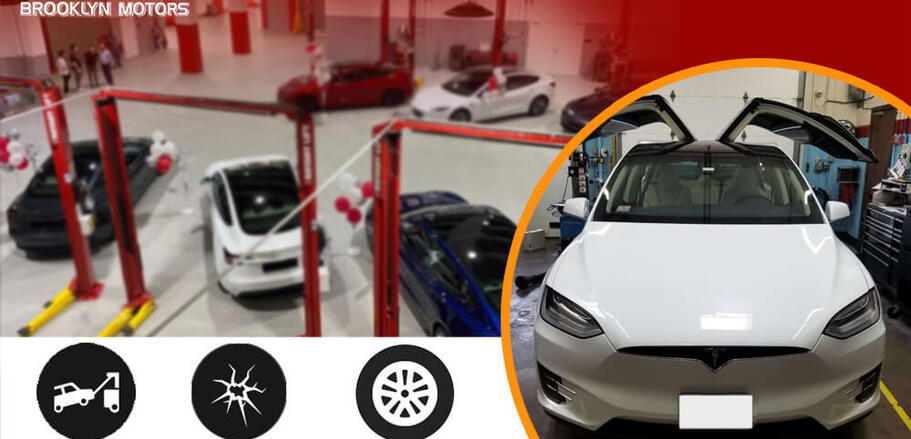
 April 15, 2024
April 15, 2024Tesla cars are known for their sleek design, cutting-edge technology, and impressive performance. However, some owners may wish to customize their electric vehicles to suit their personal preferences or enhance certain features. If you're considering modifying your Tesla, there are several important factors to keep in mind.
Understanding Tesla's warranty and policies
Tesla has strict policies regarding modifications to their vehicles. Any unauthorized modifications or alterations can potentially void the warranty and lead to complications when servicing the car at Tesla service centers. It's crucial to thoroughly review Tesla's warranty terms and conditions before proceeding with Tesla modifications near me.
Exterior modifications: Proceed with caution
While exterior modifications like custom wraps, body kits, or aftermarket wheels can enhance the visual appeal of a Tesla, they may also compromise the vehicle's aerodynamics and efficiency. Carefully research the impact of these modifications on the car's range, performance, and safety features before making any changes.
Interior customizations: Enhancing the experience
Interior modifications such as custom upholstery, audio system upgrades, or ambient lighting can personalize the cabin without affecting the car's core functionality. However, it's essential to ensure that these modifications do not interfere with the vehicle's safety systems or compromise the structural integrity of the interior components.
Software and performance upgrades
Tesla's over-the-air software updates often introduce new features and performance enhancements. While some third-party software modifications claim to unlock additional capabilities, it's important to exercise caution as these unauthorized modifications can potentially cause conflicts or instability in the vehicle's systems.
Battery and charging modifications
Modifications to the battery or charging system should be avoided unless explicitly approved by Tesla. Tampering with these critical components can have severe consequences, including reduced range, charging issues, or even potential safety hazards.
Seeking professional assistance
For those who are unsure about the implications of specific modifications, it's recommended to seek guidance from professional Tesla-certified technicians or reputable aftermarket specialists. These experts can provide valuable insights and recommendations to ensure that any modifications are safe, legal, and do not compromise the vehicle's performance or warranty coverage.
While a Tesla modification can be tempting, it's essential to remember that Tesla vehicles are designed to deliver an exceptional driving experience straight from the factory. Before embarking on any modifications, consider whether the potential benefits outweigh the risks and potential drawbacks. Ultimately, maintaining the integrity of your Tesla's core systems and features should be the top priority.
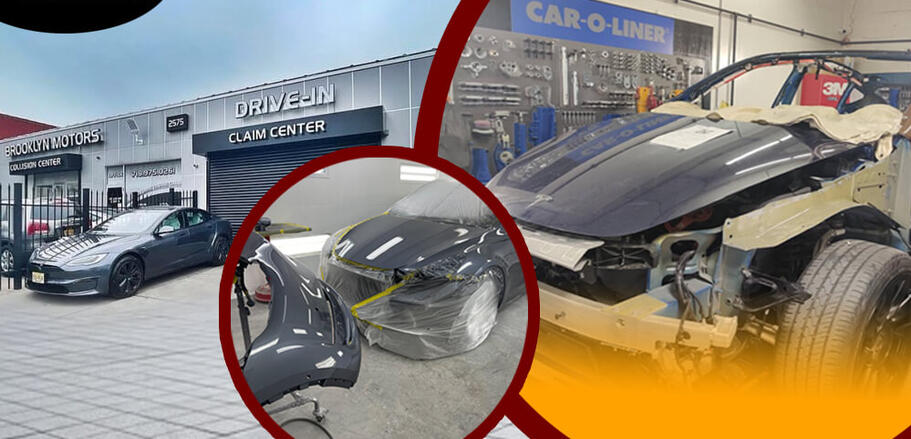
 March 15, 2024
March 15, 2024As the owner of a Tesla, you've invested in cutting-edge electric vehicle technology. These aren't just regular cars - they are highly sophisticated machines packed with complex components and advanced systems. That's why it's so important after an accident or collision to only take your Tesla to an authorized body shop for repairs. Here's what sets these specialists apart.
Genuine Tesla-certified expertise
The technicians at Tesla-approved body shops aren't your average mechanics. They undergo extensive training directly from Tesla to understand the unique engineering and manufacturing techniques involved in building these vehicles. From the aluminum body structure to the intricate battery systems, these are experts who know every nut and bolt of your specific Tesla model inside and out.
Access to authentic Tesla parts
Another huge advantage of an authorized Tesla authorized body shop near me is their access to genuine original equipment manufacturer (OEM) parts and components directly from Tesla. Third-party aftermarket or reconditioned parts simply cannot match the precision design and quality of parts produced by Tesla themselves. Replacing components with anything less puts your vehicle's safety, longevity, and performance at risk.
Advanced repair tools & technology
In addition to their specialized expertise, approved Tesla body shops are also outfitted with all the necessary equipment and technology to properly service these vehicles. We're talking specialized diagnostic tools, machinery designed for Tesla's aluminum body panels, officially approved equipment for the high-voltage battery system, and more. Your local corner auto shop simply doesn't have the capabilities.
Maintaining your warranty coverage
Perhaps the biggest reason to use a Tesla repair shop near me is to preserve your new vehicle warranty from Tesla. Using unapproved shops or components could potentially void that coverage, leaving you on the hook for expensive repair costs down the road. With an investment as significant as a Tesla, that's a major financial risk that is not worth taking.
At the end of the day, you drove away in your new Tesla because you value superior design, engineering, and technology. So why would you settle for anything less when it comes to collision repairs? Tesla has gone to great lengths to certify and support body shops with the right training, equipment, and manufacturers' parts. It's simply the best way to maintain your vehicle's original standards and keep it in peak operating condition.
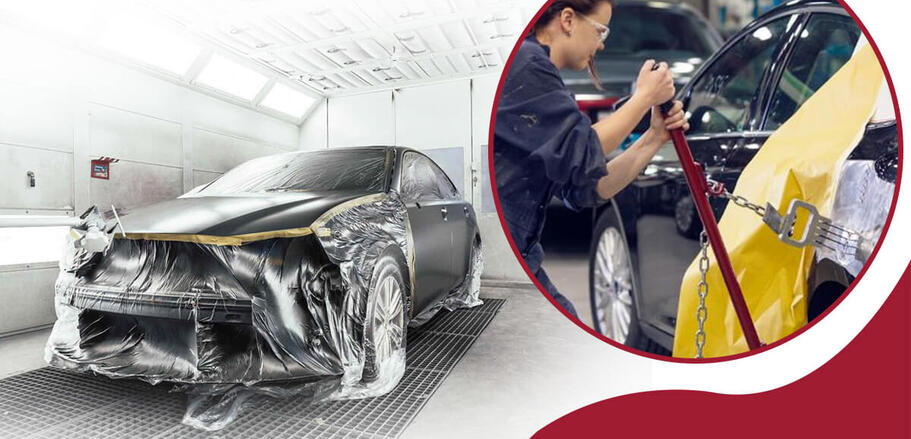
 February 25, 2024
February 25, 2024Primers and surfacers are essential pre-paint products used in EV auto body repair. Primers provide an improved surface for paint adhesion and prevent future corrosion. Epoxy primers offer excellent adhesion and durability on plastic and composite surfaces.
Surfacers, or body fillers, even out minor imperfections and damage on the exterior body. Polyester or lightweight fillers are ideal for EV repair. High-build primers and surfacers make the body surface smooth and paint-ready.
Basecoats
Basecoat paint provides color and is applied after the primer. Basecoats for EVs are specially formulated for plastic and composite materials. Waterborne acrylic urethane basecoats offer vibrant color matching and metallic finishes with an eco-friendly formula.
Basecoats for EVs need maximum flexibility to prevent cracking on plastics. 2K acrylic and polyurethane basecoats provide brilliant gloss and durability. Multiple coats may be applied for full, even coverage. The color shade needs precise matching to OEM factory specifications. You can search with an EV auto body near me and find out the type of paint used by them.
Clear coats
Clear coat paint gives the finish its final glossy shine and protection. It is layered over the colored basecoat. A high-quality polyurethane or acrylic urethane clear coat provides scratch resistance and UV ray protection from sun exposure.
Some clear coats offer ceramic properties for added durability. Flexible clear coats are required to prevent cracking on plastic EV parts. Multiple clear coat layers may be applied for increased gloss and depth. Proper clear coat application results in a flawless, smooth, professional-level finish.
Specialty coatings
Some EVs use additional specialty coatings. Anti-chip coatings prevent minor gravel damage on vulnerable areas like fenders and hoods. Matte finishes have flatter, non-glossy clear coats. Vinyl wrap coatings allow bold printed graphics.
Paint protection film, or PPF, is a clear urethane applied to high-impact regions. Proper application of these specialty coatings protects the EV's appearance and value.
Following OEM procedures using the right primers, basecoats, clear coats, and specialty coatings allows EV auto body technicians to achieve a factory-perfect, long-lasting finish repair. With an EV specialized auto body near me, you can make your car shine like new again.
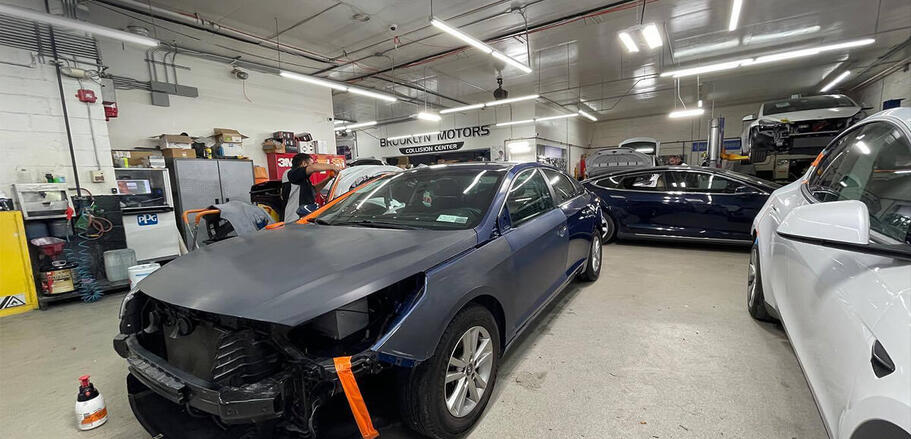
 February 22, 2024
February 22, 2024The foundation of the electrical system in a Tesla is the high-voltage power system that supports the lithium-ion battery pack and electric drive components. The battery can store up to 100 kWh of energy in Model S and X variants. This provides electrical energy to the front and rear electric motors and components like the climate control compressor. The high-voltage system operates at around 400V. Strict safety mechanisms are in place to avoid electrical hazards.
12V power supply
In addition to the high-voltage system, Tesla has a separate 12V low voltage system that supports lower draw items like lights, audio systems, power windows, etc. The 12V battery is kept charged by the main HV battery through a DC-DC converter. Fuses, relays, and controllers route 12V power to various components. The 12V architecture is similar to a regular car while allowing the high-voltage system to solely focus on drive power.
Charging equipment
To recharge the HV battery, onboard charging equipment converts high-voltage AC power into DC that can be accepted by the battery. The charging electronics are attached to the battery pack and the charge port. Different onboard chargers allow for various charge rates from home outlets up to Tesla Superchargers. The charging system is made robust enough by the Tesla auto body repair shop to safely handle very high electrical loads during charging sessions.
Wiring networks
An intricate network of wiring distributes power throughout the vehicle. High-voltage cables transmit power from the battery to the motors. Additional HV cables feed other systems. Lower voltage wiring carries signals for lighting, audio, sensors, etc. Using multiple voltage systems minimizes electrical interference. Battery Management Systems monitor voltage and current levels to ensure electrical stability that is supervised by the Tesla body shop repair.
Computers and controllers
An array of computers and electronic control modules are used to manage the electrical components. The main vehicle controller monitors the battery, while separate controllers govern the motors, charging, media control, etc. Computers determine electrical power needs and ensure electrical safety. Software and firmware are updated to evolve the electrical architecture.
Tesla vehicles have a highly technical and robust electrical architecture optimized for an electric powertrain. The systems safely provide exceptional performance through integrated high and low-voltage networks working in harmony. The electronics are designed to be maintainable and upgradeable as technology improves. This electrical pedigree is essential to meeting the demands of an electric luxury vehicle.
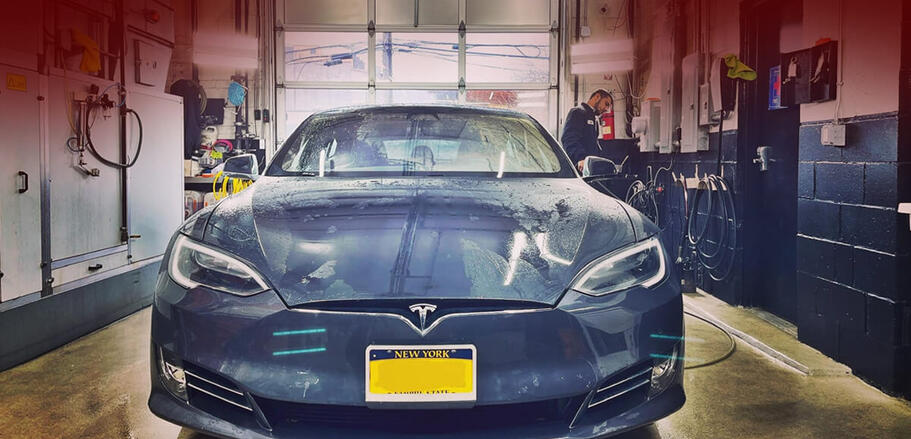
 January 25, 2024
January 25, 2024The energy required to start the engine and operate accessories like the air conditioning, radio, and lights comes from the car battery, which is an essential part of the electrical system. Lead plates and sulfuric acid combine chemically to produce electrical energy, which is how most rechargeable automobile batteries work.
To ensure optimal operation, routine maintenance is necessary, including monitoring fluid levels and making sure the battery is charged correctly. Tesla car battery is an essential component of the automotive power system, necessary for efficient engine ignition and regular vehicle operation.
Tricks and tips for increasing the life of your car battery
An essential part of an automobile that is sometimes overlooked until it fails is the battery. To guarantee a dependable and durable power source for your car, it is critical to develop excellent maintenance practices. Discover a variety of strategies for extending the life of your vehicle's battery at the Tesla authorized repair shop, which can save you money and avert unpleasant breakdowns.
Regular inspections
Visual examinations of your automobile batteries regularly might reveal possible problems early on. Inspect the area surrounding the terminals for corrosion, as it may impede the electrical current. Use a solution of baking soda and water to remove any accumulation. Furthermore, make sure the Tesla car battery is firmly attached because excessive vibration can cause internal damage.
Keep the charge
Regular short journeys can keep your battery from being fully charged, which can cause sulfation, a condition in which sulfate crystals grow on the battery plates and lower the battery's capacity. Take your automobile for longer journeys, or think about using a battery maintainer when it is parked for a long time to counteract this. The low-level charge provided by this gadget keeps the battery from fully draining.
When the engine is off, leaving your car's accessories on, like the air conditioning, radio, or lights, might cause the battery to discharge. Develop the practice of turning off every electrical device before turning the engine off. Consider getting a portable jump starter from Tesla auto body shops, which can save your life in an emergency if you inadvertently leave anything on.
 2575 Stillwell Ave,
2575 Stillwell Ave, 






